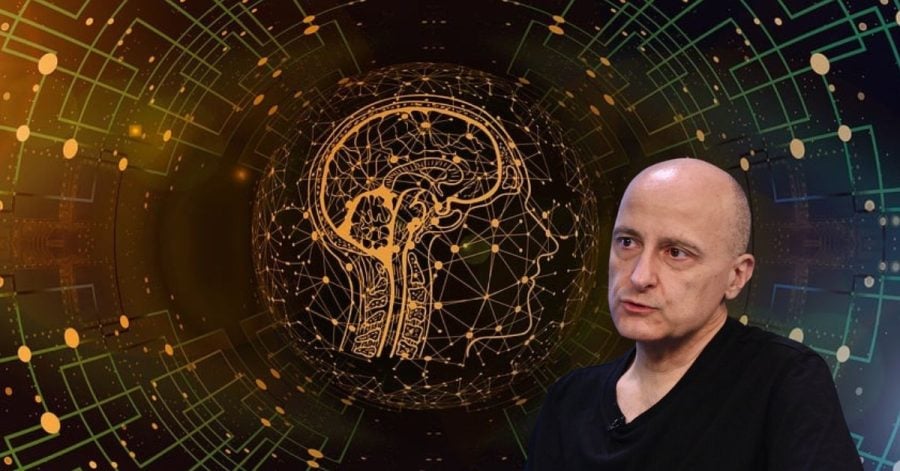As AI systems are becoming increasingly sophisticated and capable of performing tasks that were once thought to be the exclusive domain of humans, a profound impact on how we live and work, shaping the future of our world in ways that we are only beginning to understand.
While for many this is a glimpse into the future, it doesn’t come as a surprise for experts in the field. Macedonian data scientist Stojancho Tudjarski is one of them. A seasoned professional with a wealth of experience worth more than 30 years in the field of AI for a number of companies and startups in the region, Tudjarski foresees a mass adoption of this technology in various industries in the upcoming few years.
In an interview for The Recursive, Tudjarski speaks about the upcoming trends in the fields of data mining, machine learning, predictive analysis, deep learning, and AI, as well as the potential and opportunities that these technologies can have for our society.
The Recursive: What got you into AI and ML in the first place and how did your career develop throughout the years?
Stojancho Tudjarski: The primary suspect for introducing me to Data Science is my ex-director, Aleksandar Nikov from Netcetera. He advised me to go through Andrew Ng’s course on Machine Learning. Vanja Josifovski, a friend of mine since our high-school days, started to send me scientific papers about recommendation systems, and that was enough to hook me to ML and AI. Since then, everything I’m learning is related to AI and putting it into production.
For the last three years, I dedicated myself to learning and applying Transformers neural networks architecture and trained BERT and GPT-2 language models for Macedonian and all of the other Balkan languages. I have done some experiments with writing style transfer over GPT-2 models that resulted in neural networks capable of generating tons of poetry in Shakespeare’s style and proceeded with mixing writing styles, which resulted in models capable of automatically writing scientific papers about Corona in Shakespeare’s style and Christmas poetry in his style, while he never wrote such thing.
I continued my experiments with the writing style transfer over the Macedonia GPT-2 model, generating models that write poetry in the styles of Blaze Koneski, Aco Shopov, Koco Racin, Tome Velkov (Macedonian writers and poets) and I used the Serbian one for imitating Desanka Maksimovic. Examples of all of the models and complete logs of the training sessions can be found here, where it might be interesting to see how the writing style is gradually accepted until the model generates only the texts he was exposed to during the fine-tuning sessions.
In the last year and a half, I’m also starting to go deeper into the area of applying the latest state-of-the-art ML and deep learning techniques into medicine, or to be more precise, in analyzing ECG recordings and recognizing potentially dangerous heart rhythm episodes with a goal to generate alerts in time, from the small devices taken care into the pockets, without a need for Internet connection.
This is the domain covered by the company Innovation DOOEL where I’m working right now. Also, we are going aggressively into the opportunity to measure the glucose level in the blood non-invasively by monitoring the heart’s ECG only.
What are your thoughts when it comes to realizing the potential that AI and ML have?
AI is “just” a tool that can help humanity by liberating humans from boring and repetitive tasks. In the past, the functions that were overtaken by machines were mainly physical, and this caused several industrial revolutions.
These days we are witnessing the same thing, but now machines are replacing humans in doing repetitive and boring tasks that require mental effort, not just physical, which is a great power.
We all can see Tesla’s efforts to make a self-driving car with complete autonomy, i.e., without a need for human supervision. But this opens the possibility of building completely autonomous combat robots and drones, which is the dark side of this story.
When it comes to Eastern Europe (and the Balkans in particular), what would you say are the key areas where AI and ML can be used to improve the quality of life?
The areas where AI can be used are the same all over the globe. On the Balkan territory, I can see that the key problem is not “where” but “by whom”. What I have in mind is the fact that a huge number of our quality young talents are seeing themselves in Western countries, unfortunately.
COVID-19 somehow presented a chance to make a change here, at least for the professions that do not necessarily require a physical presence in the working place, and IT is an example. And we have enough experience with remote work built during the COVID-19 days.
Now, it’s up to societies to benefit from this and somehow help these young professionals as job seekers find working opportunities for remote work worldwide. How, I do not know in detail. But, if we succeed in keeping the talents at home, they can be a driving force to improve the quality of life in each segment of society, including applying AI everywhere where needed and possible.
However, this is an excellent possibility for local startups to step into the game, making something that can be verified locally, showing traction, then going big and raising funds to reach more significant markets.
Additionally, beyond using the local talent pool, there are no technical reasons why Balkan companies can’t apply AI anywhere they decide to. All the information and publicly available data is reachable over the Internet to us in an exact way as to the rest of the world.
ChatGPT is definitely the most talked about AI product so far – how do you see 2023 in terms of how AI can further develop?
2023 will hopefully bring us the ChatGPT competitors uncovered, and we can take for granted that Google has its counterpart. ChatGPT in particular, is frozen in time; he was initially trained with the texts that existed until 2021 and is not “aware” of anything beyond that time.
The obvious step now is to align it with the content occurring on the Internet frontier on a monthly/weekly/daily basis. Since OpenAI didn’t explain how they trained it, we have no idea how complicated it is, but I bet they are currently working on this.
Diffusion models showed a similar level of effectiveness in autogenerating images, there are already several successful models out there, and it is hard to imagine something better to appear, at least to me.
The other thing is somehow hanging in the air: the more advanced the technology become, the more it looks like a miracle, like magic, but at the same, we must be aware that all the concepts behind it are well known already some time ago, and, in essence, it is only relying on highly sophisticated statistics combined with matrix multiplications. All the magic, therefore, is performed by the fast machines operating over a massive amount of data, let’s say, the whole Internet.
We need to know how to improve the learning process and make it less dependent on tons of data. For example, we need to feed a machine with several hundred images of an elephant in different positions, to make it capable of recognizing it in a picture.
In contrast, a little kid needs only a couple of images to “figure out” how to identify an elephant. What we currently have absolutely no idea about is how to make a machine that will know how to recognize an elephant with two images shown to it.
What are some of the AI trends that you personally expect to see more of in 2023?
I expect a more comprehensive adaptation of the Transformers-based models across industries. The GPT-based models are examples of such models. We can already see them available on the Internet for the automatic generation of videos and music, with a given text prompt or with some chosen style.
There is no reason they can’t be used anywhere, they operate just with numbers, and it is up to the domain knowledge experts to figure out how to generate such numbers, called tokens, in a meaningful way. In Innovation DOOEL, we are presently developing a Foundation model for ECG records.
If we succeed, the benefits would be significantly reduced costs for training models for any aspect of medicine that involves reading ECG recordings and extracting data from them.
The costs will be reduced because the knowledge transfer technology applied to Foundation models allows using significantly fewer samples labeled by highly skilled (and expensive) professionals for training a model for any AI task, bringing the same or even better accuracies than currently existing models.
The same applies to the task of predicting the glucose level in the blood based on measured heart rates: it is innovative, and there are scientifically populated signs for the correlation between glycol level and the heart rate, but nobody is doing that on the market at the moment, and we are already working on collecting data and figuring out the most productive way how to use AI for this. I expect such examples to be seen all over the various industries.








